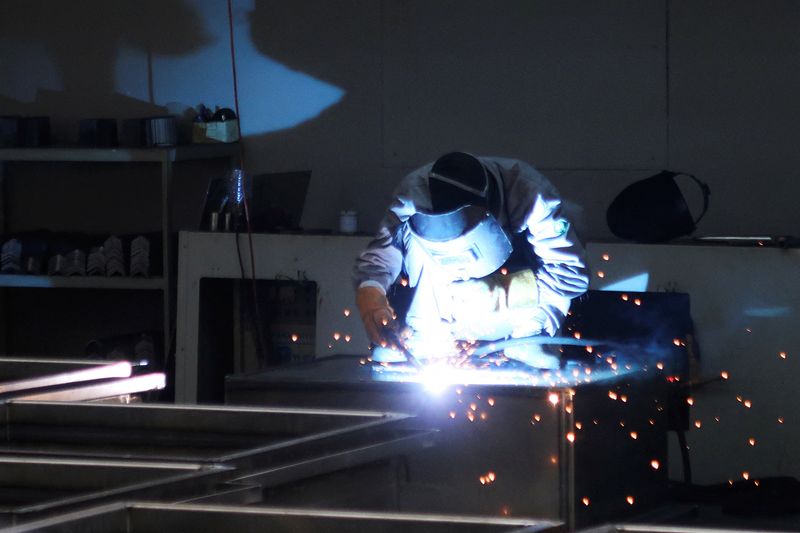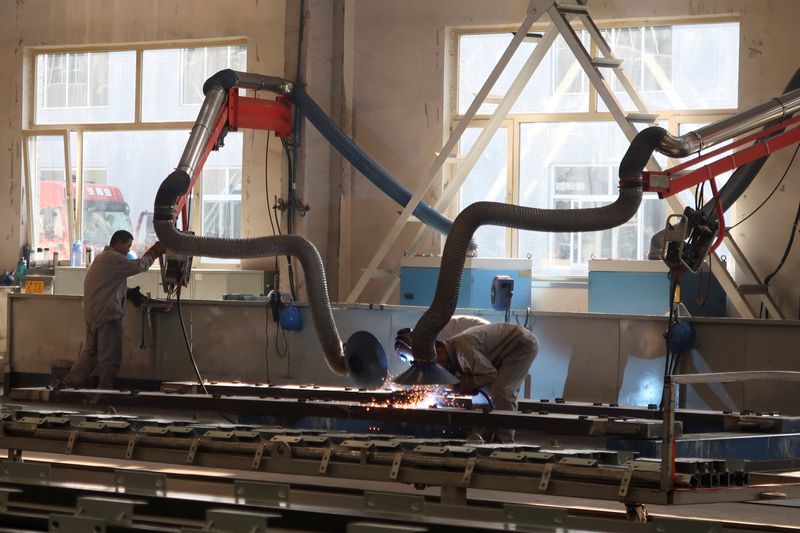BEIJING (Reuters) - China's manufacturing activity expanded at the fastest pace in 14 months in April, driven by a solid uptick in new export orders, a private survey showed on Tuesday, an encouraging sign for an economy still struggling to mount a robust recovery.
The Caixin/S&P Global manufacturing PMI rose to 51.4 in April from a 51.1 the previous month, marking the fastest pace since February 2023 and above analysts' forecasts of 51.0. The 50-point mark separates growth from contraction.
The reading echoed solid first-quarter GDP growth although other indicators for March have pointed to still-frail domestic demand and protracted weakness in the property sector
Data including industrial profits, retail sales and property sales suggest China might struggle to meet its GDP growth target of around 5.0% for 2024, a goal analysts have described as ambitious.
Expansion in manufacturers' output and new orders accelerated last month, the PMI survey showed. New export orders provided a bright spot as they grew at the fastest clip in nearly three and a half years.
"Investment goods outperformed both consumer and intermediate goods in terms of supply as well as demand at home and abroad," said Wang Zhe, Senior Economist at Caixin Insight Group.
The gauge for input costs reached a six-month high, due to rising prices for raw materials like metals and crude oil, and manufacturing firms reduced selling prices to boost orders, eating into their profits.
Business confidence remain positive but eased from March, due to concerns about rising costs and increased competition.
Companies were cautious about adding employees, and the relevant sub-index has remained negative since August last year, the survey showed.
Employment levels fell for an eighth straight month in April amid resignations and redundancies due to restructuring efforts, according to the survey, underlining the margin strains businesses continue to face.
"Weak expectations remain one of the major hurdles facing economic development, leading to increasing pressure on employment and a greater risk of deflation," said Wang.

Profits at China's industrial firms fell in March and slowed gains for the quarter compared to the first two months, official data showed on Saturday.
Fitch last month cut its outlook on China's sovereign credit rating to negative, citing risks to public finances as the economy faces increasing uncertainty in its shift to new growth models.
